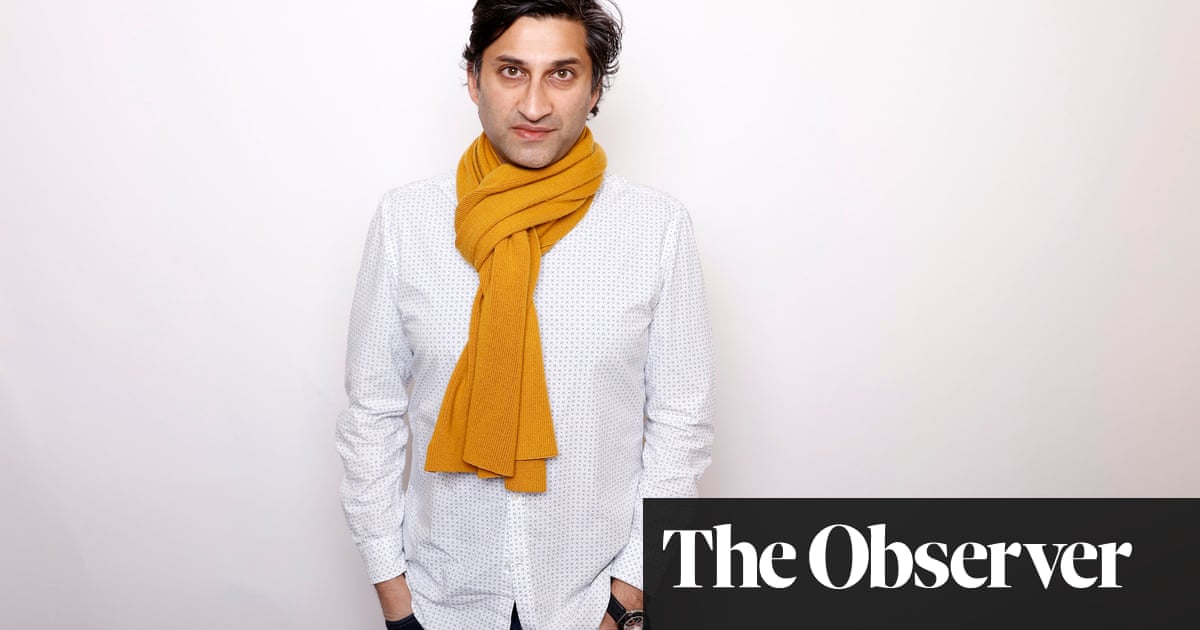
Film-maker Asif Kapadia: ‘I am a fan of social media. At least it gives people a voice’
The British film-maker Asif Kapadia grew up in north London and established himself with his 2001 debut The Warrior. In 2010 he made the documentary Senna, about F1 racing driver Ayrton Senna. It was followed by the Oscar-winning Amy Winehouse portrait Amy (2015) and Diego Maradona (2019). Kapadia’s television work includes documentary series The Me You Can’t See, 1971: The Year That Music Changed Everything and crime drama Mindhunter. This month he is guest curator at Sheffield DocFest.
These days you’re best known as a documentarist, but documentary wasn’t your first love…
I grew up watching drama and I studied directing fiction. Whenever I make a film, my references are always movies. So when I made Senna I was thinking: “This is Sunset Boulevard – this is going to be narrated by a character, and you only realise at the end that they’re dead.”
What made you want to sign up as guest curator at Sheffield DocFest?
It isn’t just films, it’s film festivals that I love. I wouldn’t have a career if not for festivals. I pitched The Warrior to my producer in the bar at the Edinburgh film festival, and we ended up making the movie. You don’t get that on an app!
Your Sheffield selection includes films about sport, music, politics, London – it feels almost like a self-portrait.
Every film is in there for a reason. I remember seeing [Patrick Keiller’s] London and not really knowing what it was: poetry, and this character travelling through town, at one point going through Stoke Newington, where I lived at the time. Dark Days [Marc Singer’s film about New York’s subterranean homeless community] made me cry – the idea that this city I was dreaming of had an underclass living under the streets. With some of them, there’s a direct connection in terms of how they affected me and the films I’ve made – When We Were Kings [Leon Gast’s film about the 1974 Ali-Foreman fight] being the most obvious.

Your recent TV series 1971… sparked debate about whether that really was the year in music. It featured Marvin Gaye, the Stones, Gil Scott-Heron… Was there anyone else you wish you’d been able to include?
There was a whole section on Stevie Wonder that was amazing, and that didn’t end up having a place in a way we wanted. It doesn’t matter – you look at the list of the artists who put out albums that year; it’s unbelievable. If anyone wants to make a counter-series and say: “Well, this year was better”, fine – it creates a conversation.
You directed some episodes of Mindhunter, about FBI agents investigating serial killers. What was it like working on a show where the masterplan was laid out by David Fincher and writer Joe Penhall?
It was great. [When I met David] we talked about Amy, and I said that, to me, that film was about investigating a crime – I interviewed people who were around Amy and were somehow responsible, or not. That’s what the characters in Mindhunter do: they go where someone died and they talk to people, to understand what happened, to stop it from happening again.
More recently, you worked on the Apple TV+ mental health series The Me You Can’t See, with Prince Harry, Oprah Winfrey and Lady Gaga.
My mum, who died quite a few years ago, had schizophrenia, so part of me thought maybe I could help. With Amy, no one at the time talked about Amy having mental health issues. It was Oprah asking me: “Would you like to do this thing?”, then meeting Harry and talking to him and hearing the issues that he had been dealing with within his family. Then Covid came along and everyone was dealing with problems. It felt like the right time to be talking about that subject matter.
You’ve also just made a dance film, Creature, with the choreographer Akram Khan.
It’s a bit of Frankenstein, it’s a bit of [Georg Büchner’s play] Woyzeck, about a person going crazy who gets pulled into a military society and falls in love. That was a mad experiment of working with dancers and Akram – they’d created this show but couldn’t perform it because of lockdown. It’ll be seen later this year.

You recently tweeted about a new project, addressing ‘the state of the world: politics, environment, corruption, tech, race and more’.
It’s been in my head for a while – since Brexit, and working in America during the Trump election and thinking: “How come overt racists keep being put on Question Time?” It’s global, because of things I’ve seen in India and Brazil – it’s a mad project trying to connect all the dots.
You’re very active on Twitter – recently posting about events at the Champions League final in Paris.
I was there – I saw what happened and I heard the French politicians blaming it on fans. They were teargassing kids, old people, disabled people, and then they turn around and blame [them]. So how else can you complain? That’s why there are videos – whether it’s a shooting, the police doing something or politicians lying, people feel: “At least I can put this out there and someone might see it as evidence.” I am a fan [of social media]. At least it gives people a voice.
You’ve worked on series for Netflix and Apple – how do you feel streaming culture is affecting cinema?
For me, cinema is still the ultimate. I’ve never been someone who relaxed by coming home and turning on the TV. I struggle to sit down and watch without checking my phone. I am the problem – that’s why I love going to the cinema and having to turn my phone off.
A Documentary Journey With Asif Kapadia is part of Sheffield DocFest, 23-28 June














